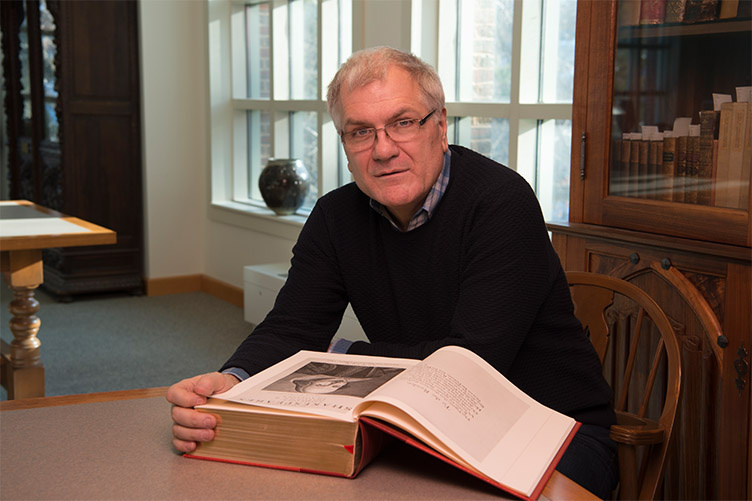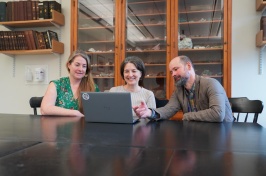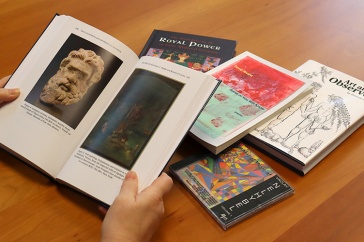
Douglas Lanier, professor of English
The tragic play “Timon of Athens” isn’t one of Shakespeare’s most popular plays, but professor of English Douglas Lanier argues it may be most appropriate for our time, as it explores the themes of generosity, friendship and betrayal — and what happens when a man loses everything.
“It is about a man who finances a luxurious lifestyle on credit, only to have his debts called in and his friends abandon him. He becomes cynical and comes to hate mankind, abusing women and vowing revenge upon the state he once revered,” Lanier says. “This is, I would argue, a mirror image of what happened to many people in the past 10 years.”
 |
| View book on the publisher's website. |
In this latest edition of “Timon of Athens,” published by Focus in March, Lanier writes a 40-page introduction that he addresses to modern student readers, helping them better understand the Renaissance concept of cynicism as a philosophical system and why Shakespeare might have been interested in it. The book also includes how to read a Shakespeare play like an actor might, a timeline, a section of discussion questions, and a complete bibliography of adaptations and screen versions. The play was originally published in 1623.
The play particularly focuses deeply on the nature of generosity. Lanier argues that Timon misunderstands the nature of gift-giving — at his core is a hunger for approval and adoration that he can never seem to fulfill, and his generosity is false because he lives on credit to finance his philanthropy.
“And when it all falls apart…the turn is extraordinarily quick and extreme, but Shakespeare works to make it psychologically credible. In the middle of the play, Shakespeare includes several scenes in which Timon’s former friends reject helping him out of his debts, one by one; and there have rarely been more savage portrayals of disloyalty in literature,” he says, adding that after Timon’s fall, he can’t recognize the one person who remains loyal to him: his servant. “Shakespeare (in this play) is most interested in revealing the psychology of a man who loses it all.”
Lanier has worked on Shakespeare adaptations in contemporary culture for more than a decade. He said he was interested in exploring “Timon of Athens” because during 2008 and afterward, there was a flurry in productions of the play, where there had been so few productions of it earlier.
“That suggested to me that the play was speaking to our time in a new way — that got me started with asking how and why.”
Lanier is widely recognized as a pioneer in the study of modern appropriations of Shakespeare in all media and his expertise continues to earn him recognition in the field. From 2016-2017, he served as the Fulbright Global Shakespeare Centre Distinguished Chair at Queen Mary University of London and the University of Warwick; and this academic year has been serving as a research fellow at the Folger Shakespeare Library. This year, he also will be publishing a monograph on “The Merchant of Venice” for the Arden Language & Writing Series. In it, Lanier looks at the intersections between the language of business and the language of racial and religious prejudice, particularly anti-Semitism.
-
Written By:
Krysten Godfrey Maddocks '96 | College of Liberal Arts | krysten.godfreymaddocks@unh.edu





















































